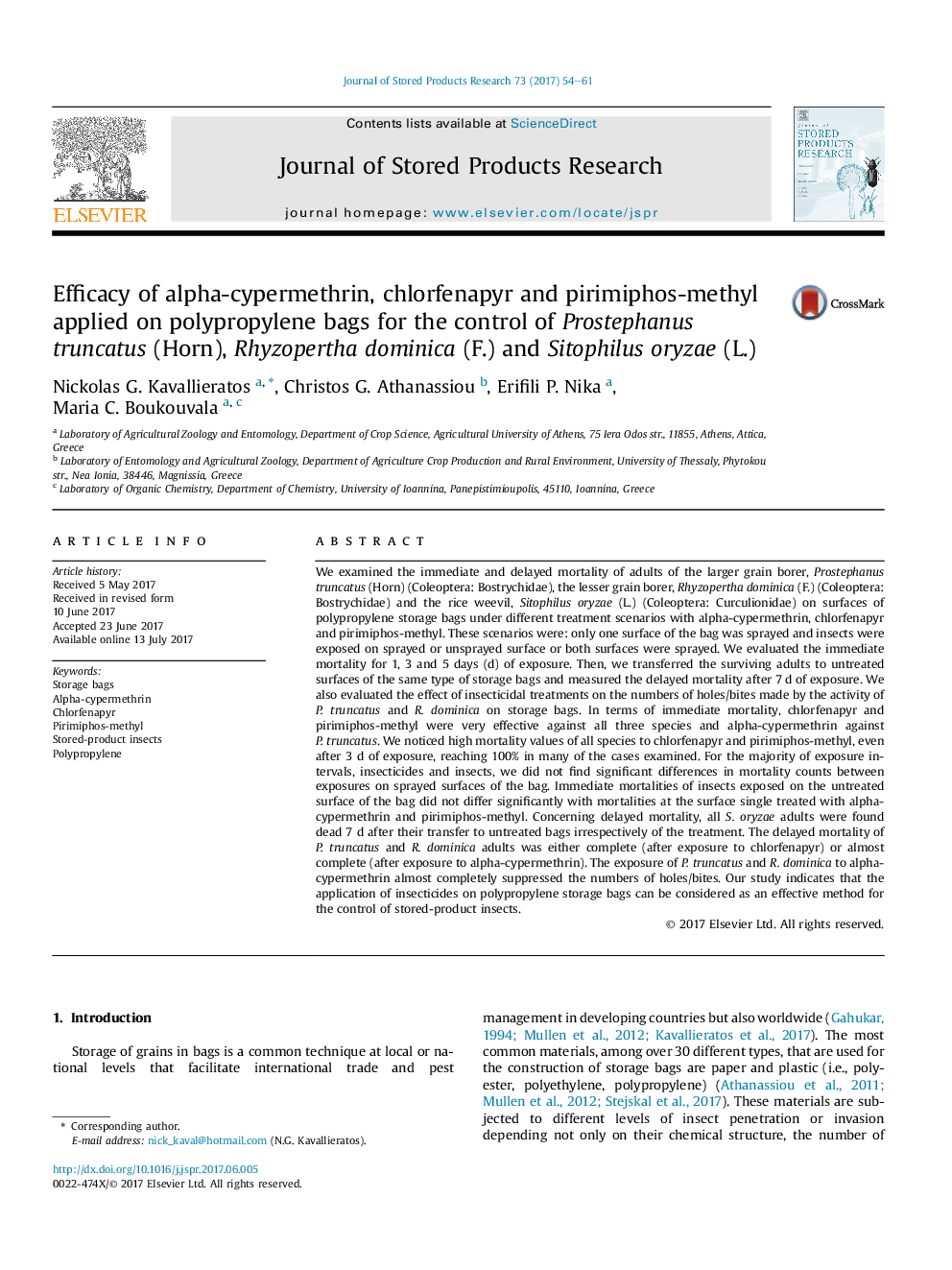| Article ID | Journal | Published Year | Pages | File Type |
|---|---|---|---|---|
| 5762514 | Journal of Stored Products Research | 2017 | 8 Pages |
Abstract
We examined the immediate and delayed mortality of adults of the larger grain borer, Prostephanus truncatus (Horn) (Coleoptera: Bostrychidae), the lesser grain borer, Rhyzopertha dominica (F.) (Coleoptera: Bostrychidae) and the rice weevil, Sitophilus oryzae (L.) (Coleoptera: Curculionidae) on surfaces of polypropylene storage bags under different treatment scenarios with alpha-cypermethrin, chlorfenapyr and pirimiphos-methyl. These scenarios were: only one surface of the bag was sprayed and insects were exposed on sprayed or unsprayed surface or both surfaces were sprayed. We evaluated the immediate mortality for 1, 3 and 5 days (d) of exposure. Then, we transferred the surviving adults to untreated surfaces of the same type of storage bags and measured the delayed mortality after 7 d of exposure. We also evaluated the effect of insecticidal treatments on the numbers of holes/bites made by the activity of P. truncatus and R. dominica on storage bags. In terms of immediate mortality, chlorfenapyr and pirimiphos-methyl were very effective against all three species and alpha-cypermethrin against P. truncatus. We noticed high mortality values of all species to chlorfenapyr and pirimiphos-methyl, even after 3 d of exposure, reaching 100% in many of the cases examined. For the majority of exposure intervals, insecticides and insects, we did not find significant differences in mortality counts between exposures on sprayed surfaces of the bag. Immediate mortalities of insects exposed on the untreated surface of the bag did not differ significantly with mortalities at the surface single treated with alpha-cypermethrin and pirimiphos-methyl. Concerning delayed mortality, all S. oryzae adults were found dead 7 d after their transfer to untreated bags irrespectively of the treatment. The delayed mortality of P. truncatus and R. dominica adults was either complete (after exposure to chlorfenapyr) or almost complete (after exposure to alpha-cypermethrin). The exposure of P. truncatus and R. dominica to alpha-cypermethrin almost completely suppressed the numbers of holes/bites. Our study indicates that the application of insecticides on polypropylene storage bags can be considered as an effective method for the control of stored-product insects.
Related Topics
Life Sciences
Agricultural and Biological Sciences
Agronomy and Crop Science
Authors
Nickolas G. Kavallieratos, Christos G. Athanassiou, Erifili P. Nika, Maria C. Boukouvala,
